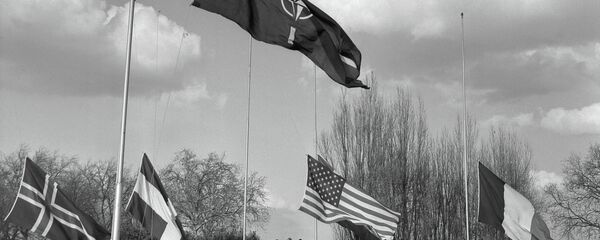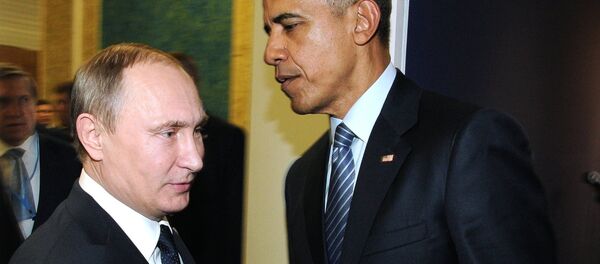It is fixated on Russia being a major threat to the US national security and demonizing Moscow, while actually, Washington needs to focus on other priorities, says author Michael Curtis.
“At this moment of history when the United States and European democratic countries are confronted by pressing problems, especially Islamist terrorism and a gigantic migration crisis, US foreign policy should be based more on appraisal of present practical factors and less on remembrance of things past such as the Cold War between the US and the Soviet Union,” he says.
The author therefore argues that no Russian actions “constitute a threat to Western Europe, let alone the US. Nor are the Russian submarine patrols and the military maneuvers on its western borders an indication of the possible start of World War III.”
“One is that, in spite of political differences between Russia and the US on Syria and other issues, there is no likelihood of any direct military confrontation between the two countries.”
Nor is any conflict likely with NATO countries, he adds, though admitting that “understandably, Romania, Poland, and the Baltics are fearful” of Russia for their own reasons.
He also recalls that “NATO was created to safeguard Europe against Stalin’s Soviet Union, but essentially it has no real function since the “evil empire” ended in 1991”.
“A second factor, usually forgotten or ignored, is the May 27, 1997 NATO-Russia Founding Act, signed by Russian President Boris Yeltsin, President Bill Clinton, and leaders of fifteen other NATO countries, that the two sides did not consider themselves as adversaries, and that they were determined to give concrete substance to their shared commitment to build a stable, peaceful, undivided Europe.”
They agreed that there would be no stationing of large numbers of troops along borders shared by Russia and NATO countries, he further reminded.
At this point in history, President Vladimir Putin is “not only a skilled politician”, but the “only one man on this planet who can end the civil war in Syria by making a phone call,” the author acknowledges quoting British Foreign Minister Philip Hammond.
“His main aim is to make Russia a major player in the political theater of the Middle East as well as in international politics generally. Moscow wants to dine as an equal with Washington, alone if possible,” he says.
So, the author concludes, rather than sleepwalking, “as the European powers did in the days before the First World War in 1914,” the two countries should move forwards together to be able to withstand global challenges and prevent the break-out of World War III.





